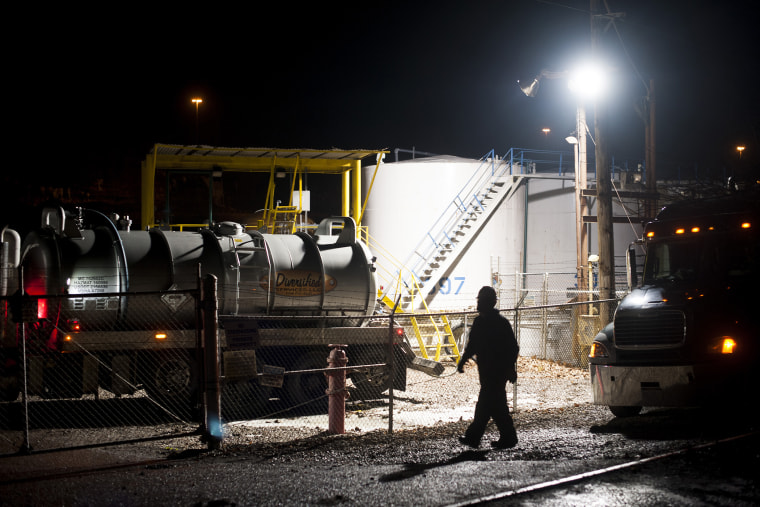More than 100,000 gallons of waste from a coal processing facility leaked into a tributary of West Virginia’s Kanawha River early Tuesday, blackening six miles of Fields Creek, the head of the state’s Department of Environmental Protection told reporters on a call Tuesday evening.
Randy Huffman of the DEP said that the grimy byproduct, known as “coal slurry,” leaked into the Kanawha River as well, according to NBC News.
Huffman said that the waste material did not contain the chemical Crude MCHM, which leaked into the Elk River and contaminated the water supply for 300,000 residents of the same area just over one month ago.
"We found out late this afternoon they had switched from MCHM to another medium for cleaning their coal. So the MCHM was discontinued back in January," Huffman said.
Huffman did not identify which other materials were used to clean the coal. The process could include a variety of more toxic chemicals and metals.
West Virginia American Water, the company that manages the Kanawha Valley Water Treatment Plant, released a statement Tuesday morning saying that the latest leak would not affect the public water supply.
“Our employees are working on behalf of our customers with local and state officials to gather additional information,” West Virginia American Water spokeswoman Laura Jordan said in a statement. “We have been in contact with the West Virginia Bureau for Public Health, which concurs that they do not anticipate any impact to our plant on the Elk River.”
The coal slurry leaked from the Patriot facility between midnight and 5:30 a.m. Tuesday. Emergency service workers said the company reported the spill in the 7 a.m. hour.
Officials from the Department of Environmental Protection tested water samples at the Patriot Coal processing facility, where the spill occurred Tuesday, and downstream.
A 2009 report issued by the U.S. Office of Surface Mining Reclamation and Enforcement concluded that “while the State is following its approved program the existing policies and procedures are not effective in reducing or preventing blackwater spills.”
The Charleston Gazette reported that the Department of Environmental Protection declined to reevaluate its policies on blackwater spills in response to the report, with the mining director at the time arguing that “the violation rate for blackwater spills is going down.”
The second chemical spill comes after two Kanawha County schools were dismissed last week when students and teachers smelled in the water an odor of black licorice associated with Crude MCHM, and reported headaches and burning eyes and noses.
The schools had been given the “all-clear” after being evaluated in relation to the Jan. 9 spill. While public officials maintain that the drinking water tainted by the January spill now meets safety standards for the surrounding area’s 300,000 residents, many are skeptical.
West Virginia Governor Earl Ray Tomblin committed $650,000 Tuesday to an independent study on household water supplies called the West Virginia Testing Assessment Project, or WV TAP. The study, led by Dr. Andrew Welton and Jeff Rosen of Corona Environmental Consulting, aims to explain why residents continue to smell the black licorice odor associated with MCHM when authorities have determined the levels to be non-detectable.
NBC News contributed to this report
